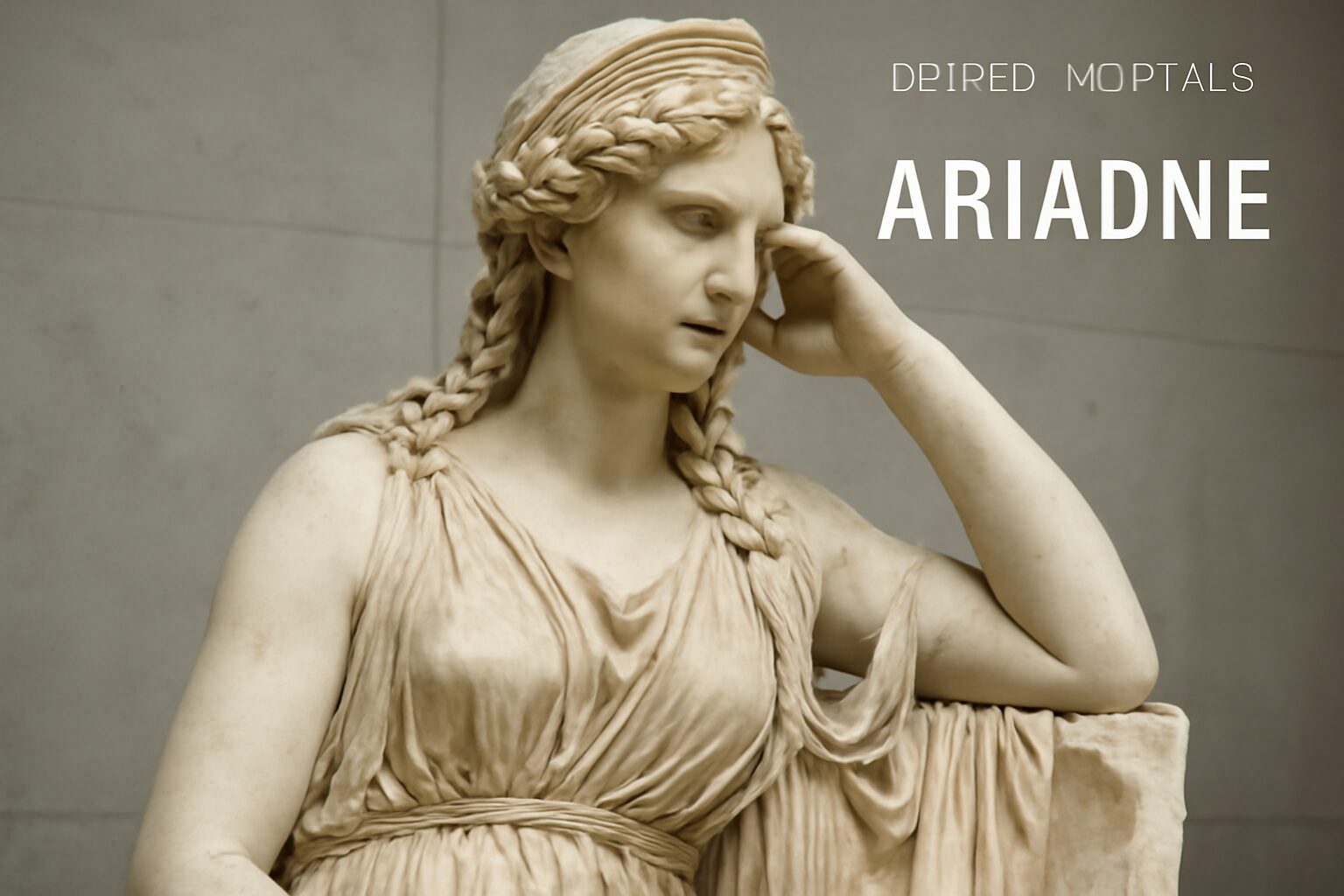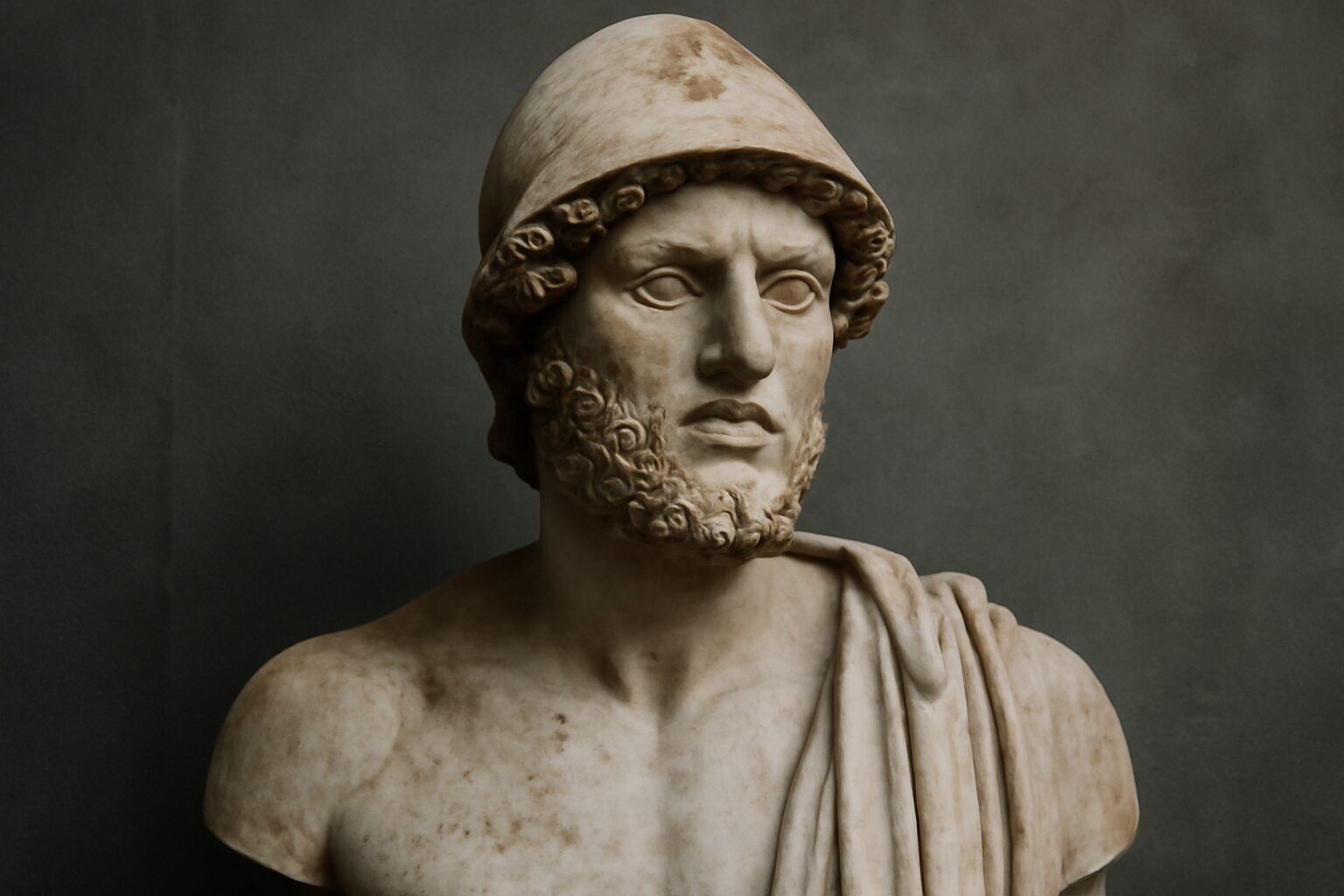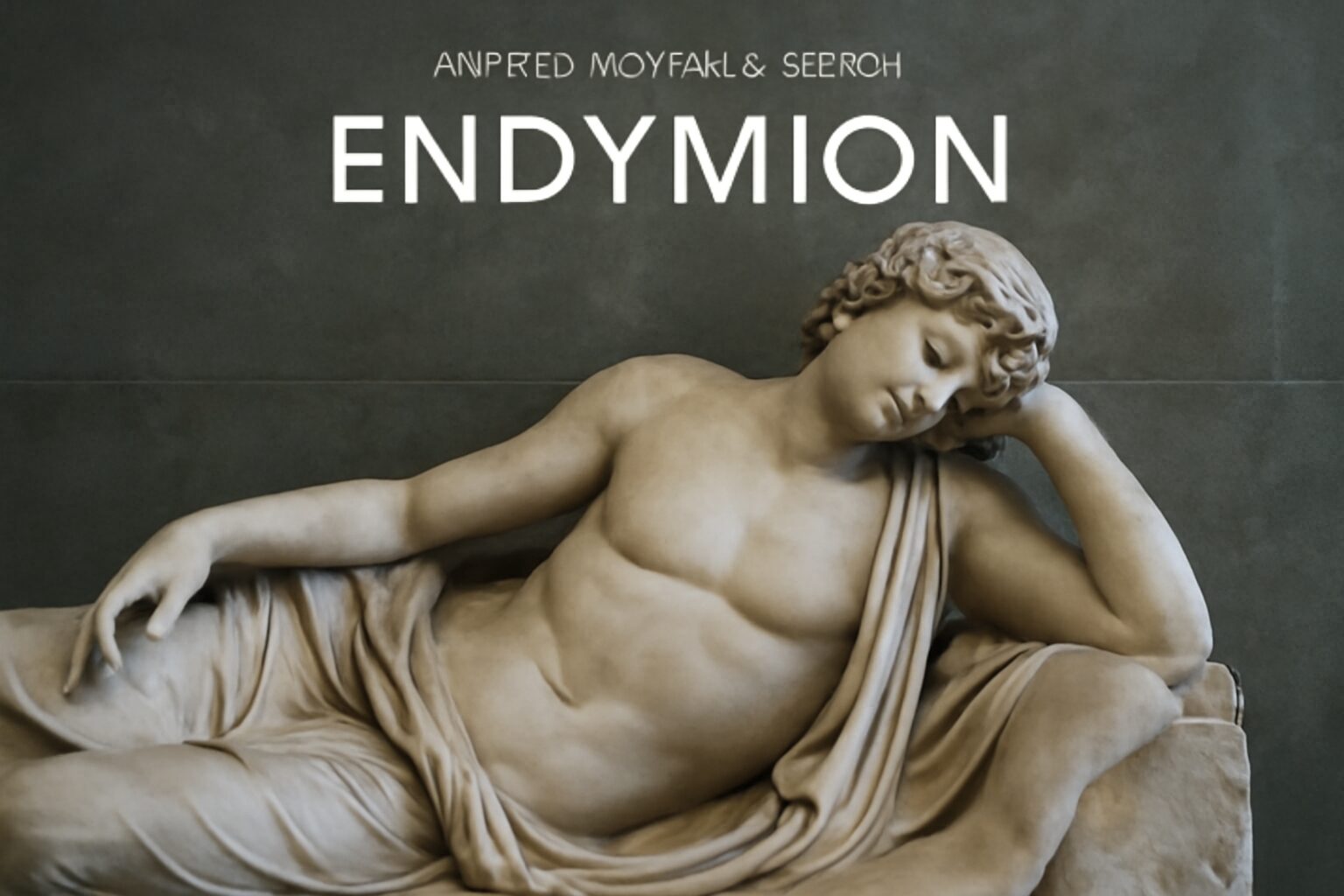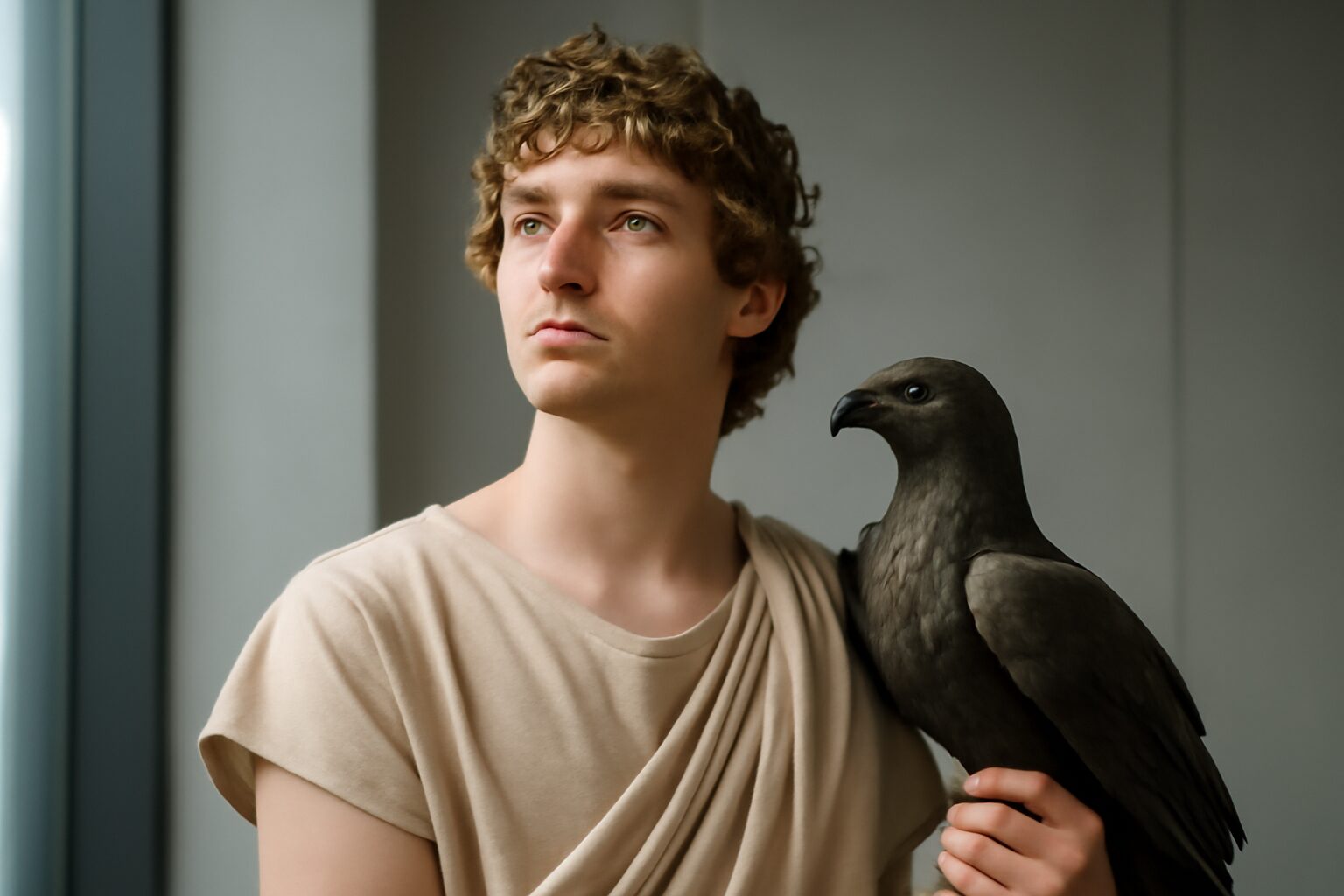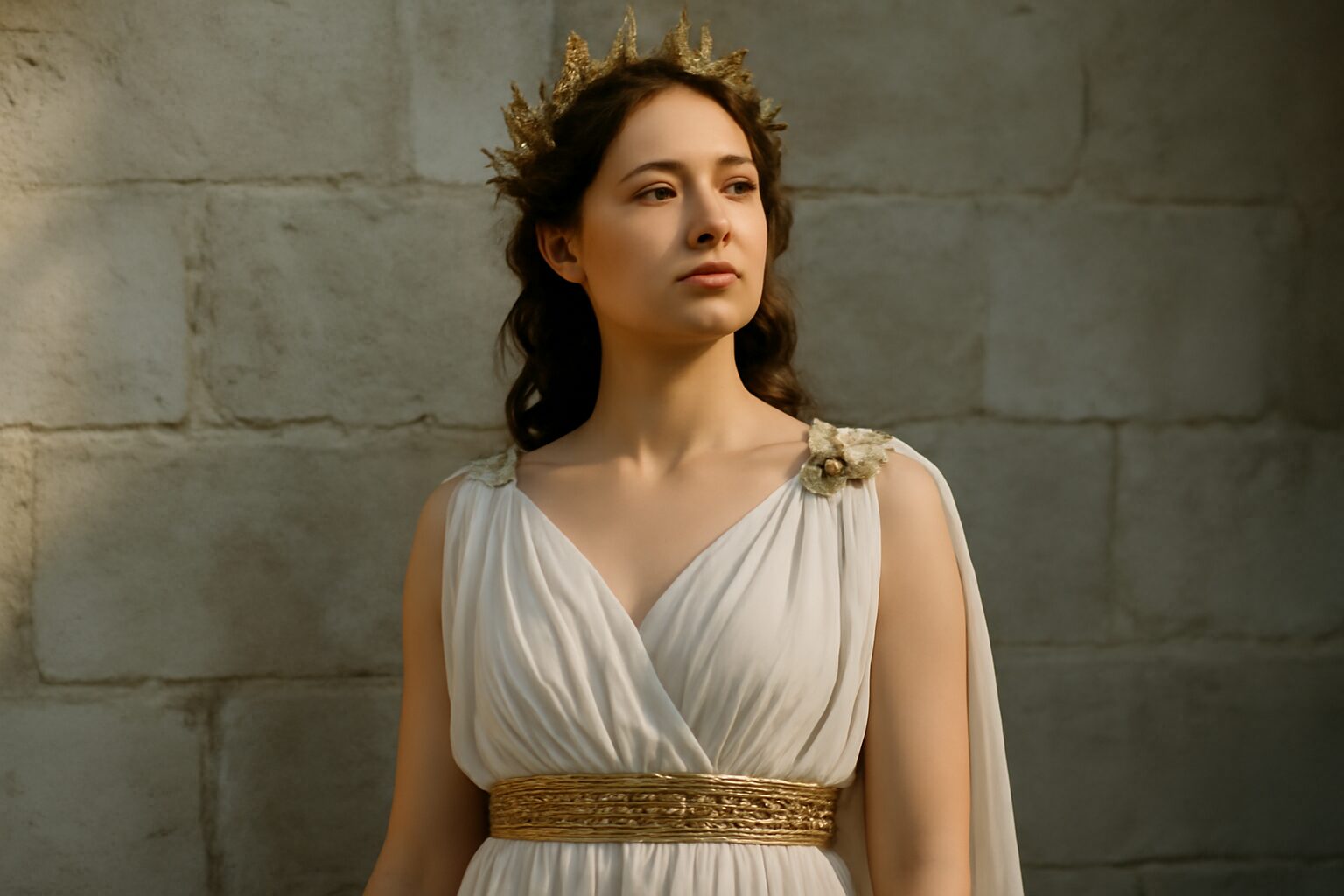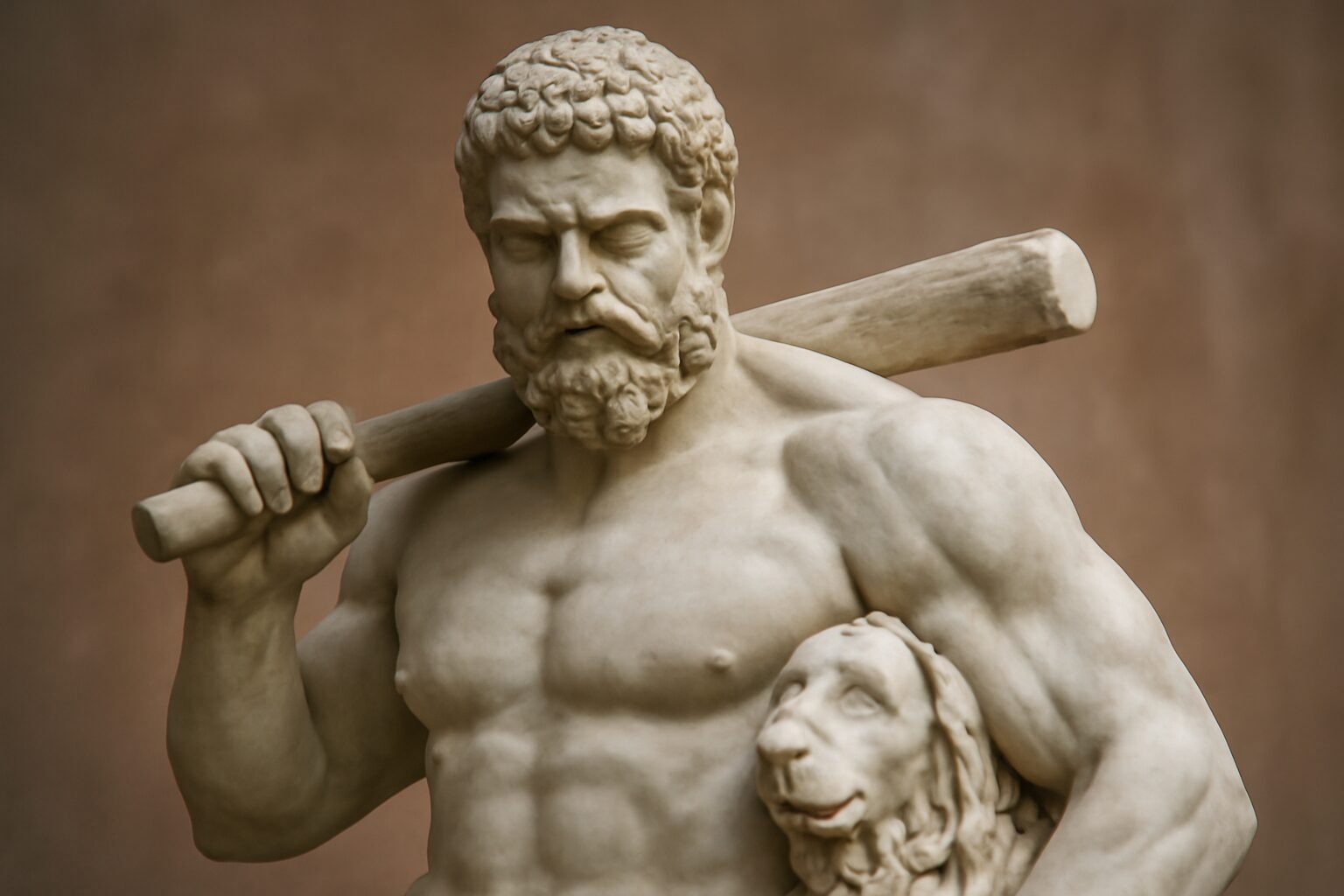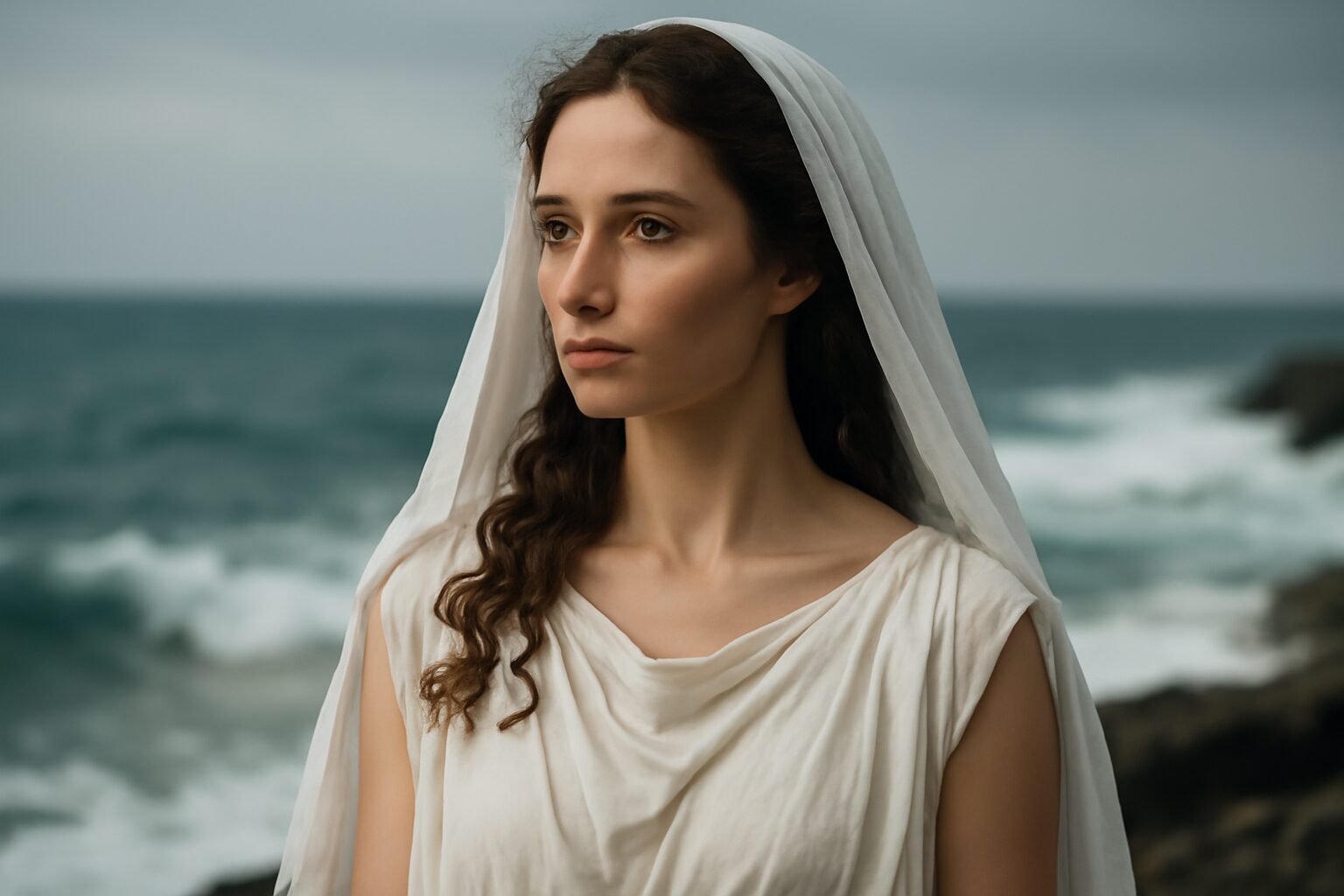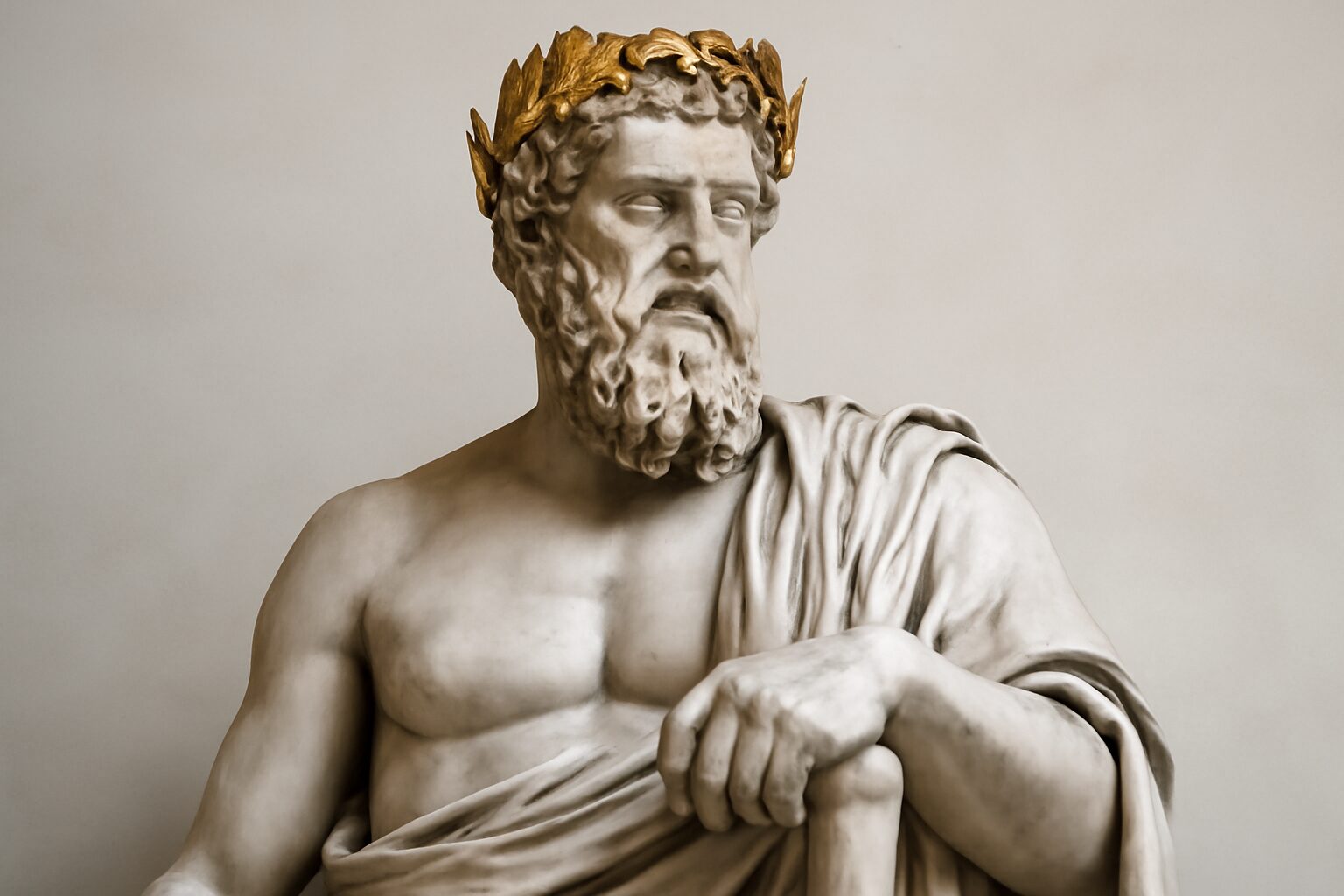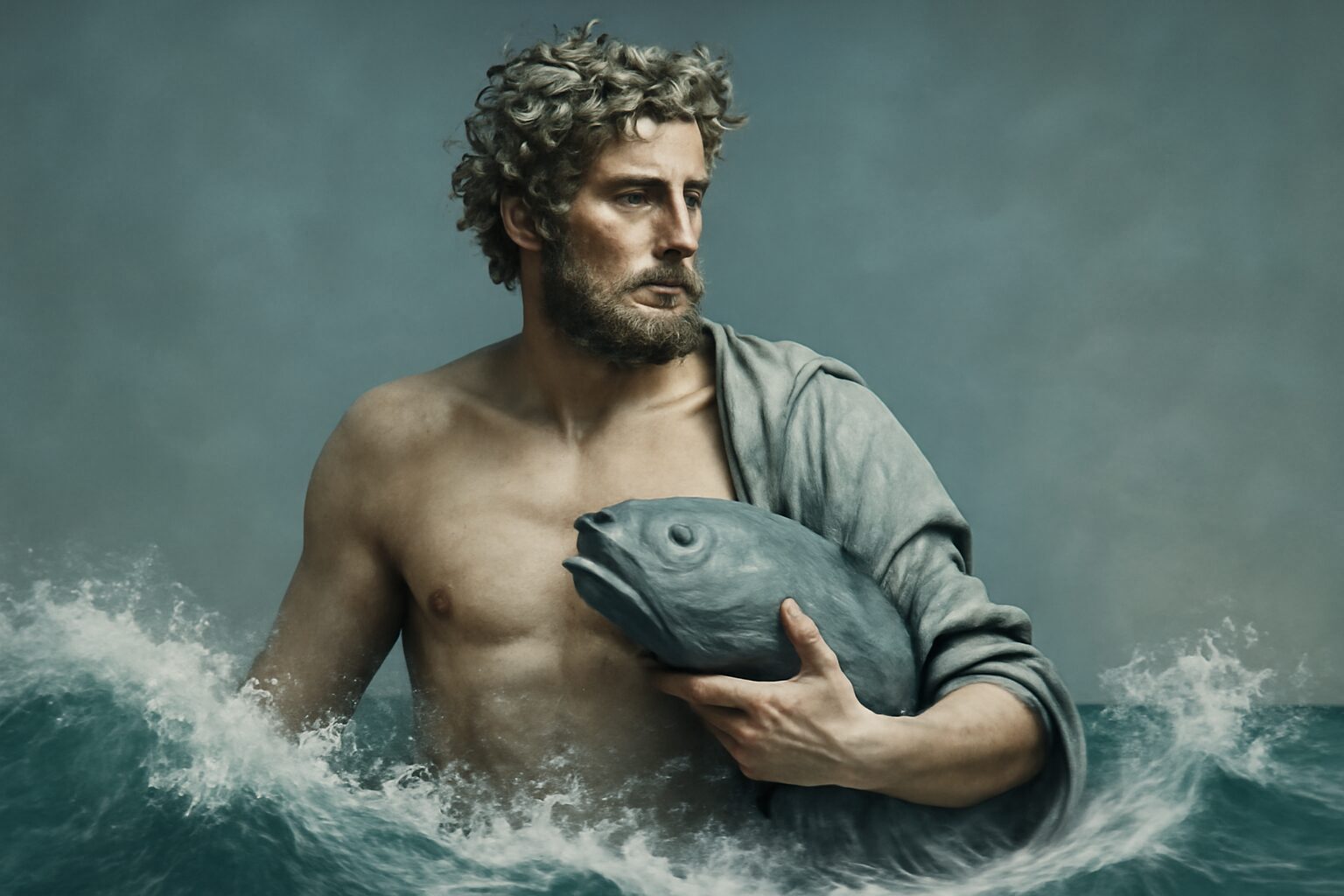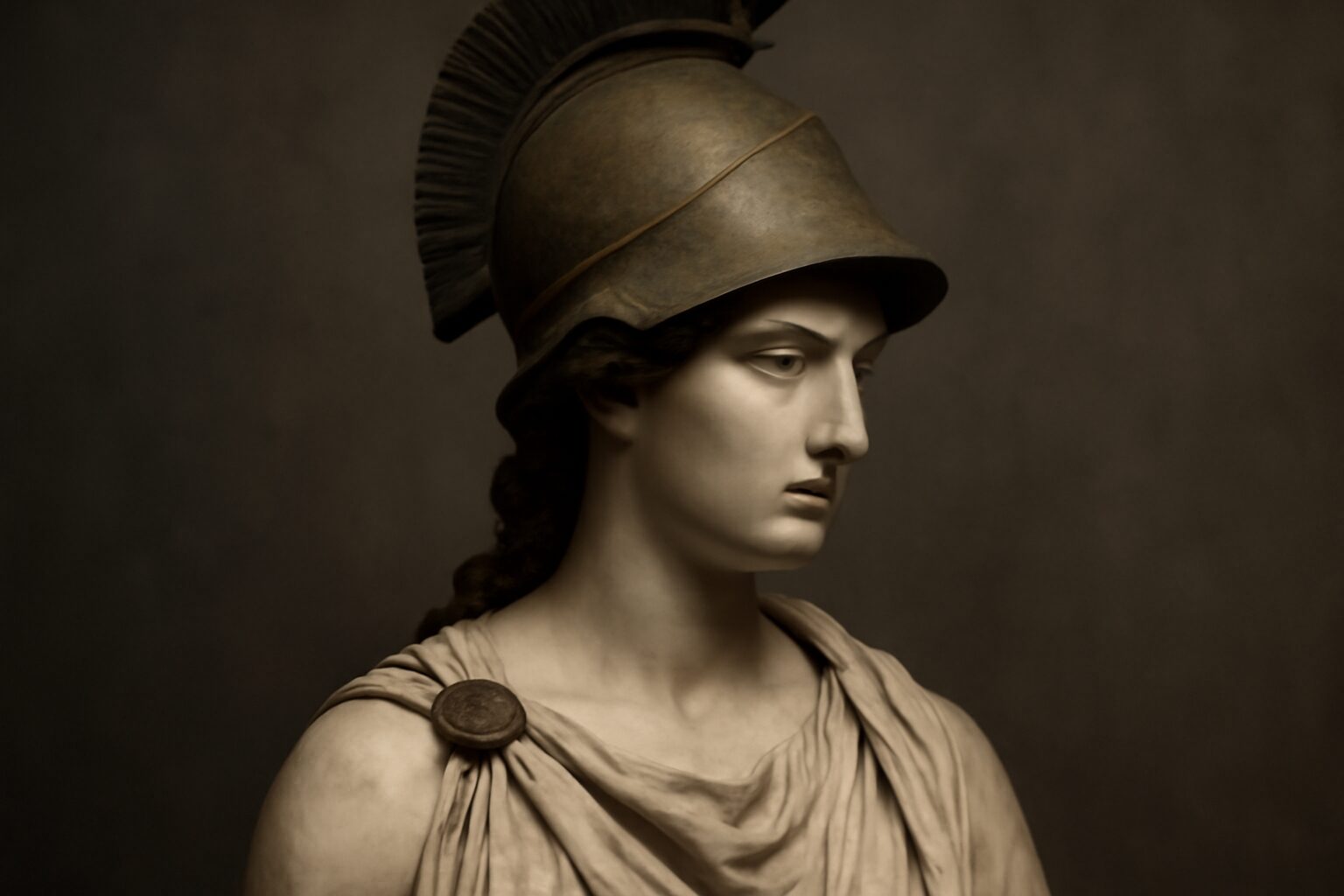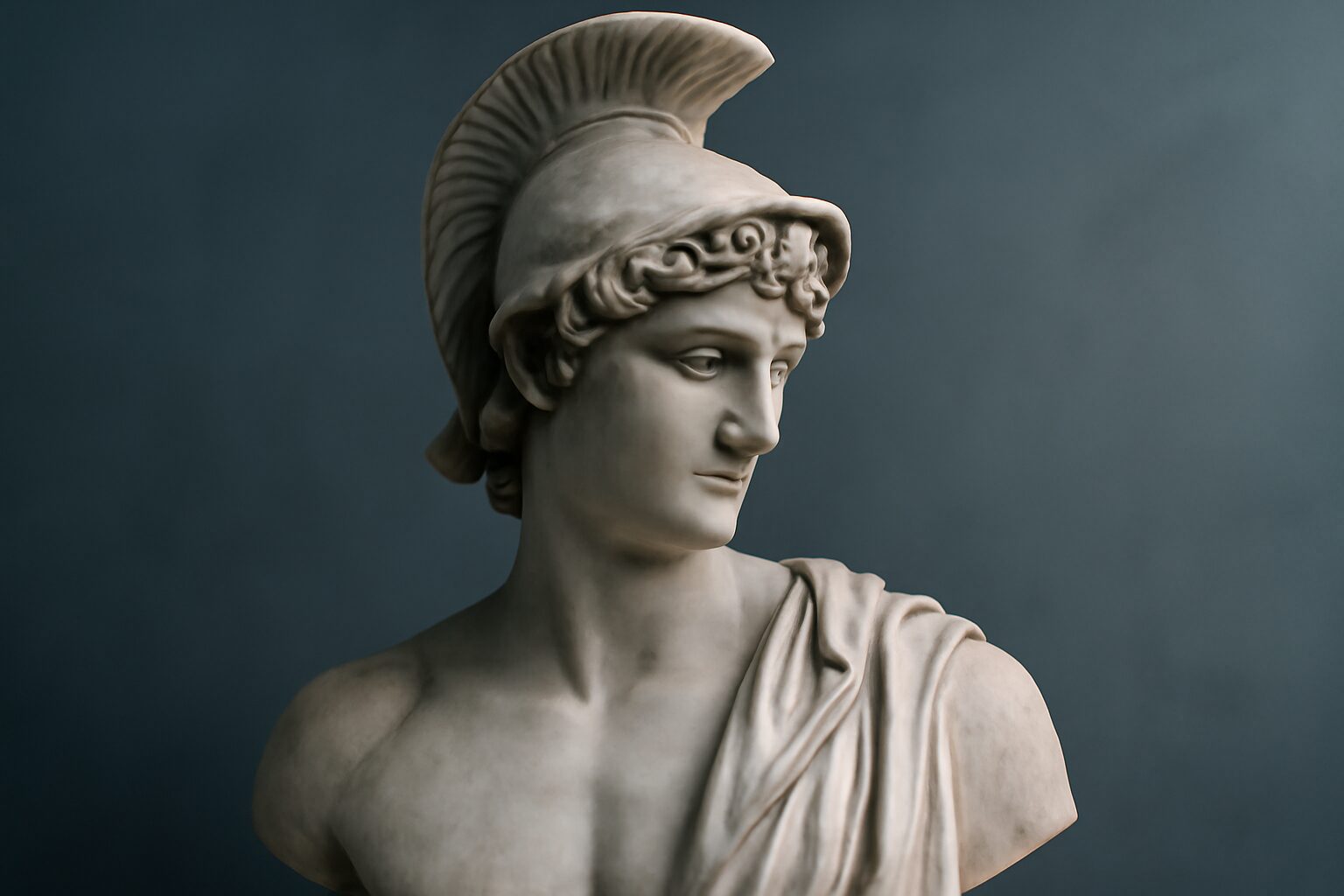Orithyia: The Abducted Princess of Athens
In Greek mythology, Orithyia was a princess of Athens, daughter of King Erechtheus and Queen Praxithea. Her name means "mountain rage", hinting at the turbulent fate that awaited her. While not a goddess herself, her story intertwines with the divine through her dramatic abduction by Boreas, the god of the north wind.
The Abduction by Boreas
The most famous myth about Orithyia tells how Boreas, smitten by her beauty, carried her away while she danced near the Ilissos River. According to Ovid's Metamorphoses, Boreas initially tried to woo her gently, but when she resisted, he resorted to his elemental power, enveloping her in a whirlwind and taking her to his northern realm in Thrace.
This union between the mortal princess and the wind god produced two famous sons: Zetes and Calais, known as the Boreads. These winged heroes would later join Jason's Argonauts on their quest for the Golden Fleece.
Symbolism and Significance
Orithyia's story represents several important themes in Greek mythology:
- The power of nature deities over human lives
- The Athenian royal lineage's divine connections
- The concept of marriage by capture, a recurring motif in Greek myths
Her abduction was often depicted in ancient art, particularly on Athenian vases, where she's shown struggling against Boreas' grasp or being swept away by the wind.
Historical Connections
Interestingly, Orithyia's myth may have roots in historical Athenian-Thracian relations. Some scholars suggest the story symbolizes Athens' political and cultural connections with Thrace, where Boreas was particularly worshiped. The Athenians built a sanctuary to Boreas after he reportedly destroyed Persian ships during the Greco-Persian Wars, showing how the myth persisted in civic identity.
While not as prominent as Olympian goddesses, Orithyia's tale remains a captivating example of how Greek mythology blended human stories with natural forces and divine intervention.
Alternative Names for Orithyia
God Name: Oreithyia (Greek)
An alternative spelling of Orithyia in Greek mythology, often used in different texts or regional variations.
God Name: Orithyia (Roman)
The Roman adaptation of the Greek name, retaining the original form but sometimes associated with Roman interpretations of the myth.
God Name: Orithya (Greek)
A variant spelling found in some ancient Greek sources, reflecting dialectal or transcriptional differences.
Tales about Orithyia
Orithyia and Boreas: The North Wind's Bride
Orithyia, the beautiful princess of Athens, often danced along the banks of the Ilissos River, unaware that she had captured the attention of Boreas, the fierce North Wind god. Boreas, known for his icy breath and tempestuous nature, had watched her from the clouds, his heart stirring with a passion as wild as the storms he commanded. He asked King Erechtheus for her hand, but the king, fearing the god's violent nature, refused.
Enraged by the rejection, Boreas decided to take what he desired by force. One day, as Orithyia gathered flowers with her friends, the sky darkened and a chilling gale swept down from the north. Boreas descended in a whirlwind of snow and leaves, his form a blur of frost and power. He snatched Orithyia into his arms, carrying her away to his icy realm in Thrace. There, far from the warmth of Athens, she became his wife and queen of the winds, eventually bearing him sons—Zetes and Calaïs—who would grow to be famed winged heroes. Though her fate began with a storm, Orithyia learned to embrace the wild freedom of the wind, her spirit as untamed as the gales that howled outside her new home.
Orithyia and Zephyrus: A Gentle Rivalry
After Orithyia's abduction by Boreas, her sister, Chione, caught the eye of another wind god: Zephyrus, the gentle West Wind. Zephyrus, whose breezes brought spring blossoms and calm seas, fell deeply in love with Chione, seeing in her a reflection of Orithyia's grace. He wooed her with soft whispers and carried the scent of hyacinths to her window, promising a life of tranquility unlike the harshness her sister endured.
However, Zephyrus faced a subtle rivalry from Boreas, who watched from the north with a mix of pride and protectiveness. Boreas sent occasional gusts to remind Zephyrus of his power, but the West Wind merely laughed, weaving his gentler magic around Chione. In time, Zephyrus won her heart, and their union symbolized the balance between the fierce and the mild—a contrast to Orithyia's own stormy marriage. The two sisters, bound by wind gods, became symbols of how love can thrive in both tempest and calm, their stories intertwined like the shifting breezes that sweep across the world.
Frequently Asked Questions
Who is Orithyia in Greek mythology?
Orithyia was a mortal princess in Greek mythology who was abducted by Boreas, the god of the north wind, and later deified as a minor goddess associated with cold winds and mountains.
Why was Orithyia deified in Greek mythology?
Orithyia was deified after her marriage to Boreas, as she became associated with the winds and storms. This was common in Greek mythology, where mortals connected to gods often gained divine status.
What is the significance of Orithyia's story?
Orithyia's story represents the Greek belief in the close relationship between gods and mortals, and how divine forces could interact with and transform human lives. It also explains natural phenomena like harsh winds.
How does the concept of deified mortals appear in modern culture?
The idea of humans becoming divine appears in modern superhero stories and celebrity worship, where exceptional individuals are elevated to near-godlike status, similar to how ancient Greeks viewed deified mortals.
What can we learn from Orithyia's myth today?
Orithyia's story teaches us about ancient Greek explanations of nature, their religious beliefs about divinity, and how they used mythology to understand relationships between humans and supernatural forces.




